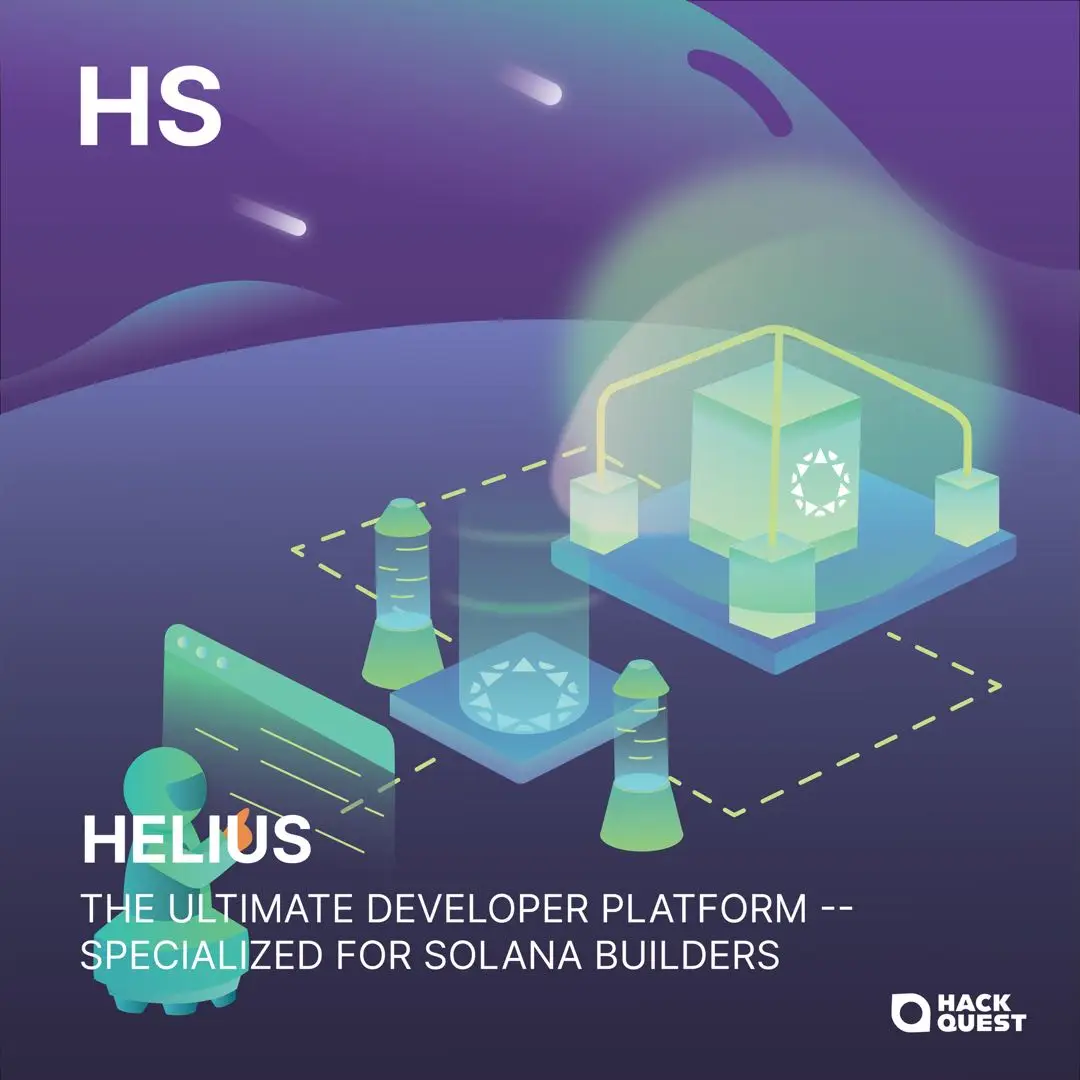Back
Helius
Solana
By HackQuest
Apr 14,20243 min readWelcome to the world of Web3, where cryptocurrencies, blockchain, and a unique culture converge. Entering the world of Web3 can be both thrilling and overwhelming, especially when faced with the seemingly cryptic language used by enthusiasts. Don't worry if you feel they sound like some secret codes, we are here to unravel their meaning. In this article, we are going to introduce [Helius].

What is Helius?
Helius: Powering Up Solana Development
In the bustling world of Solana, a blockchain known for its speed and scalability, a name keeps popping up: Helius. But what exactly is Helius, and how does it help developers build amazing things on Solana? Buckle up, because we're about to dive into the world of Helius and unveil its secrets for beginner-friendly understanding.
Helius: The Developer's Best Friend
Imagine Helius as a one-stop shop for Solana developers. It's a suite of tools and infrastructure designed to make building applications on Solana faster, easier, and more efficient. Here's how Helius simplifies the development process:
Turbocharged RPC Nodes:
Think of RPC nodes as the gatekeepers to the Solana network. Developers use them to interact with the blockchain and get information. Helius provides robust and reliable RPC nodes, ensuring smooth communication between your application and the network. Imagine it like having a fast and dedicated internet connection specifically for building on Solana.
Powerful APIs (Application Programming Interfaces):
APIs are like pre-written instructions that developers can use to perform specific tasks. Helius offers a comprehensive set of APIs that streamline data access and interaction with the Solana network. Think of them as shortcuts that save developers time and effort when building their applications.
Webhooks and Notification Systems:
Imagine wanting your application to react to specific events happening on the Solana blockchain. Helius provides webhooks and notification systems that allow for real-time communication. This is like having a notification system that lets your app know something important just happened on Solana.
Benefits for Developers: Building Better, Faster
By using Helius, developers on Solana can enjoy several benefits:
Faster Development Cycles
Helius' tools and infrastructure can significantly reduce development time. Developers can focus on creating innovative features instead of getting bogged down in the technical complexities.
Improved Application Performance
Reliable RPC nodes and efficient APIs contribute to smoother and more responsive applications built on Solana. This translates to a better user experience for those using the app.
Simplified Integration with Solana
Helius' comprehensive offerings make it easier for developers to integrate their applications with the Solana blockchain. Think of it as having all the necessary building blocks readily available, making the construction process much simpler.
Helium vs. Helius: Don't Get Confused!
Here's a quick heads-up to avoid confusion: there's another project called Helium, which uses a network of devices to provide wireless connectivity. While both projects deal with technology, they operate in different areas. Helius is specifically focused on developer tools for the Solana blockchain.
The Future of Helius: Building a Thriving Solana Ecosystem
Helius plays a crucial role in the growth of the Solana ecosystem. By empowering developers with the tools they need, Helius helps create a wider variety of innovative applications built on Solana. This ultimately benefits everyone involved: developers can build cooler things, and users get to experience the power and potential of the Solana blockchain.
So, the next time you hear about Helius, remember it's not a new cryptocurrency or a competitor to Solana. It's the secret weapon behind many of the exciting applications being built on this innovative blockchain.